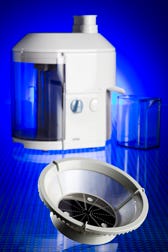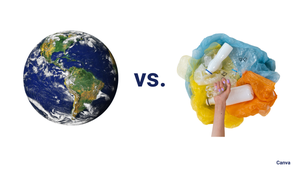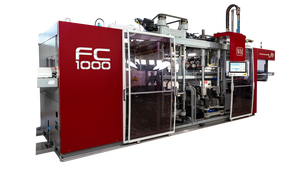Regulations that took effect last summer in Europe force suppliers to prove, often anew, that their materials are safe for food contact. Plastics and chemicals supplier BASF (Ludwigshafen, Germany) has done that again, adding three new grades to the list of food-contact-approved thermoplastics it offers to processors in Europe.
July 14, 2009
Regulations that took effect last summer in Europe force suppliers to prove, often anew, that their materials are safe for food contact. Plastics and chemicals supplier BASF (Ludwigshafen, Germany) has done that again, adding three new grades to the list of food-contact-approved thermoplastics it offers to processors in Europe.
|
On Aug. 1, 2008, regulation no. (EG) 2023/2006 “On Good Manufacturing Practices” (GMP) went into effect in the European Union with the intent to eliminate any opportunity in the supply chain for impurities harmful to consumers to be in contact with food. According to the GMP regulation, an enhanced quality assurance and process control system must be in place for plastics that come into contact with food. For plastics suppliers, this new regulation often means they must select and additionally qualify some raw materials and more extensively document their quality assurance.
Starting last month, BASF added three new styrenic plastics in Europe to its line of plastics approved specifically for food contact applications. All are ASA (acrylonitrile-styrene-acrylic ester copolymer) marketed by the company under the brand name Luran. Luran S 777 K FC (Food Contact) is a basic material for a wide range of applications, whereas Luran S 757 G FC is said to offer high stiffness and strength in conjunction with good flow characteristics. High impact resistance is the hallmark of the Luran S 797 S FC grade. Luran S typically sees use in household appliances such as coffee makers, juicers and microwaveable dishes, as well as toothbrushes. —[email protected]
About the Author(s)
You May Also Like



